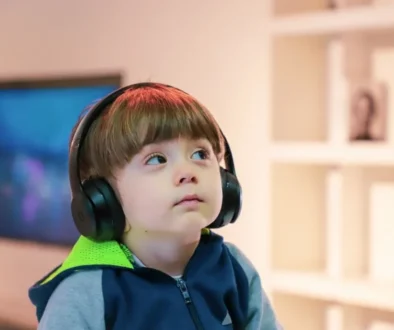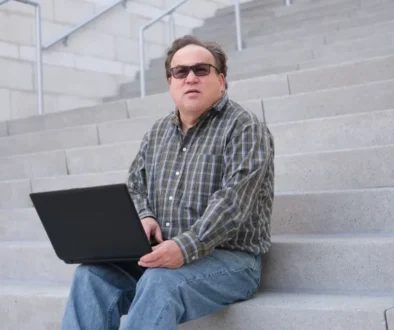At What Age Can You Get an Autism Diagnosis for Your Child?
Did you know that approximately 1 in 54 children become diagnosed with autism spectrum disorder (ADS) in the United States a year? There is more education today on what to look for in early development for children with autism, but more education is still needed. Many parents anxiously watch their kids make sure they meet milestones and watch how they interact with other children. Parents also compare their children’s behaviors to others. While this may help some, it is important to speak to your child’s pediatrician if you are concerned.
Keep reading to learn more about what autism is and what age an autism diagnosis can be made.
Autism Diagnosis
Diagnosis of autism can be more difficult than other medical conditions. Autism is not like other medical conditions where blood tests or other medical tests can help diagnose. To diagnose autism, a physician must look into how the child develops and behaves to help them reach an autism diagnosis.
Even siblings can develop and have different behaviors from one another. So sometimes, it’s hard for parents to know if their child is showing signs of autism.
Additionally, since autism is based on development and behavior, it cannot be diagnosed until the child is a toddler. In some cases, a diagnosis isn’t possible until the child is older.
Sometimes toddlers as young as 18 months or slightly younger can be diagnoses or suspected to have autism spectrum disorder (ADS). Then by the time a child reaches 2 years old, an autism diagnosis can usually be completed and considered a very reliable diagnosis at this age.
Some children do not reach an autism diagnosis until they are older, though. In some cases, people with autism may not receive a diagnosis until they are in their teens or possibly adulthood.
An earlier diagnosis does benefit the child. With an earlier diagnosis, a child with autism can get the help they need earlier on.
Early Signs of Autism
Autism signs may vary between children. However, there are some early signs to look for when it comes to autism.
One early sign of autism can be limiting and avoiding eye contact with others. Children may not play or interact with other children, parents, or other caretakers.
Children with autism may also have a harder time with language and may not have as many words as other children their age. Additionally, they may have a harder time communicating by using words.
Later Signs of Autism
When possible early monitoring, screening, evaluation, and diagnosis of autism can help children get therapy and other treatment help they may need. However, sometimes signs do take longer to show up.
Once children get older, some signs of autism may be difficult creating and maintaining friendships. Additionally, older children may have a hard time communicating with adults and other children their age.
In school, some children with autism may have a harder time following rules and understanding expected behaviors. In addition, various mental health disorders and conditions may also bring awareness that a child may have autism, such as:
- Attention-deficit disorder (ADD)
- Attention-deficit hyperactivity disorder (ADHD)
- Obsessive-compulsive disorder (OCD)
- Anxiety
- Depression
Unfortunately, there are some cases where children are initially misdiagnosed. This is why finding a good assessment and testing program is crucial.
Developmental Monitoring vs. Developmental Screening
Developmental monitoring assesses how children grow and reach developmental milestones. However, the developmental screening takes things one step further. Developmental screening evaluates your child’s development through various tests and questionaries.
Developmental Monitoring
Developmental monitoring assesses developmental milestones such as:
- Playing
- Learning
- Speaking
- Behaving
- Mobility
People in a child’s life, such as parents, grandparents, childcare providers, and other caregivers for the child, can help in assessments for developmental monitoring. For example, if you or someone notices that a child is not meeting milestones, you can talk to your pediatrician or doctor about your concerns.
During wellness visits, your pediatrician’s office may also ask questions in regards to developmental monitoring. For example, if a child is missing milestones, this may be a sign of a problem, and your pediatrician may recommend your child sees someone for developmental screening.
Developmental Screening
Developmental screening uses different checklists and questionnaires to assess a child’s development in:
- Language
- Movement
- Thinking
- Behavior
- Emotions
Developmental screening is more in-depth than developmental monitoring. However, it’s important when trying to reach an autism diagnosis. Most pediatricians do a short developmental and behavioral screening during certain wellness checkups.
The American Academy of Pediatrics (AAP) recommends a child’s wellness check-up appointment at 18 months and 24 months. A child is screened specifically for autism.
The AAP also recommends that a child gets screen more frequently for autism if they have siblings or family members with autism. The APP also recommends screening if a child has certain behaviors associated with autism.
Developmental Pediatrician
Developmental Pediatrics is an autism diagnosis facility in Texas. They use a special approach to help assess and diagnose children with autism.
Development Pediatrics assessment is broken down into four parts. These four parts help to understand the unique strengths and challenges your child may face when learning and interacting with others.
Developmental Pediatrics offers assessment services to children of all ages. Starting at just 18 months and going from toddler years, young children, and preteens.
For children between ages 18 months to 6 years old, Developmental Pediatrics typically requires four visits. However, children 6 years old and older or younger who are less likely to struggle with autism require three visits to determine a diagnosis.
Finding Answers Today
Your child’s health and development are important and making if you have concerns about showing signs of autism. It is essential that you speak up and let your pediatrician know. Then, your child’s pediatrician can further evaluate your child and refer you to a specialist.
Even as young as 18 months, children may start to show signs of Autism. An earlier autism diagnosis leads to earlier treatment.
Contact us at Developmental Pediatrics for an in-depth evaluation of an autism diagnosis in Texas.



